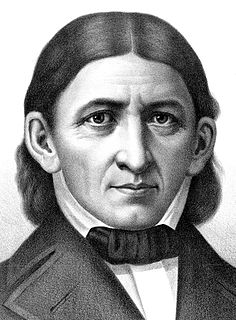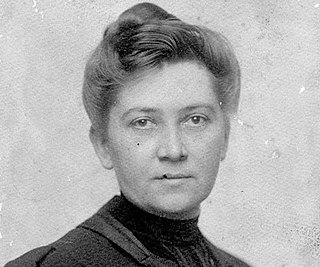A Quote by Karl Marx
He who before was the money owner, now strides in front as capitalist; the possessor of labor-power follows as his laborer. The one with an air of importance, smirking, intent on business; the other hesitant, like one who is bringing his own hide to market and has nothing to expect but a hiding.
Related Quotes
When every one is to cultivate himself into man, condemning a man to machine-like labor amounts to the same thing as slavery. If a factory-worker must tire himself to death twelve hours and more, he is cut off from becoming man. Every labor is to have the intent that the man be satisfied.... His labor is nothing taken by itself, has no object in itself, is nothing complete in itself; he labors only into another's hands, and is used (exploited) by this other.
The market economy is the social system of the division of labor under private ownership of the means of production. Everybody acts on his own behalf; but everybodys actions aim at the satisfaction of other peoples needs as well as at the satisfaction of his own. Everybody in acting serves his fellow citizens.
The mind grows by self revelation. In play the child ascertains what he can do, discovers his possibilities of will and thought by exerting his power spontaneously. In work he follows a task prescribed for him by another, and doesn't reveal his own proclivities and inclinations; but another's. In play he reveals his own original power.
Nothing fans me into such a state of peaceful mental somnambulance as the intellectual antics of a person who displays his learning, not from vanity always, but frequently because it is all he has got; no real sense, no wisdom of his own, merely much good stuff he has learned from other sources. He spreads it like a garment as any other decent person would to hide the thinness of his shanks.
In His discourses, His miracles, His parables, His sufferings, His resurrection, He gradually raises the pedestal of His humanity before the world, but under a cover, until the shaft reaches from the grave to the heavens, whenHe lifts the curtain, and displays the figure of a man on a throne, for the worship of the universe; and clothing His church with His own power, He authorizes it to baptize and to preach remission of sins in His own name.
What the working man sells is not directly his Labor, but his Laboring Power, the temporary disposal of which he makes over to the capitalist. This is so much the case that I do not know whether by the English Law, but certainly by some Continental Laws, the maximum time is fixed for which a man is allowed to sell his laboring power. If allowed to do so for any indefinite period whatever, slavery would be immediately restored. Such a sale, if it comprised his lifetime, for example, would make him at once the lifelong slave of his employer.
An actor must communicate his author's given message--comedy, tragedy, serio- comedy; then comes his unique moment, as he is confronted by the looked-for, yet at times unexpected, reaction of the audience. This split second is his; he is in command of his medium; the effect vanishes into thin air; but that moment has a power all its own and, like power in any form, is stimulating and alluring.
The villager, born humbly and bred hard,
Content his wealth, and poverty his guard,
In action simply just, in conscience clear,
By guilt untainted, undisturb'd by fear,
His means but scanty, and his wants but few,
Labor his business, and his pleasure too,
Enjoys more comforts in a single hour
Than ages give the wretch condemn'd to power.






































